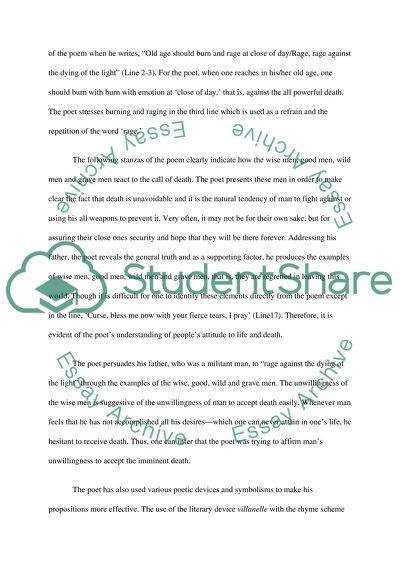Cite this document
(“Critical analysis do not go gentle into that good night by dylan Essay”, n.d.)
Retrieved from https://studentshare.org/environmental-studies/1417751-critical-analysis-do-not-go-gentle-into-that-good
Retrieved from https://studentshare.org/environmental-studies/1417751-critical-analysis-do-not-go-gentle-into-that-good
(Critical Analysis Do Not Go Gentle into That Good Night by Dylan Essay)
https://studentshare.org/environmental-studies/1417751-critical-analysis-do-not-go-gentle-into-that-good.
https://studentshare.org/environmental-studies/1417751-critical-analysis-do-not-go-gentle-into-that-good.
“Critical Analysis Do Not Go Gentle into That Good Night by Dylan Essay”, n.d. https://studentshare.org/environmental-studies/1417751-critical-analysis-do-not-go-gentle-into-that-good.


